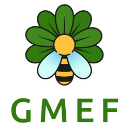Background
Philips Park is a critically important Local Nature Reserve with a rich industrial heritage and excellent recreational assets. The combination of both the natural and historical heritage makes Philips Park an invaluable and unique site with numerous benefits for the local community and for the wider Greater Manchester landscape. Awareness of the site is however poor and the condition of its habitats has deteriorated over the past 15 years due to reduced conservation management work. During 2021 we worked in collaboration with local communities and Bury Council to kick start the recovery of nature at Philips Park.
The Need
Bats are legally protected in UK and are a key indicator species for the health of ecosystems because they rely to a great extent on the good quality of habitats and on healthy prey populations. It is critical that our collaborative work to kick start the recovery of nature at Philips Park is strengthened to ensure that the bat populations of the site are protected and expanded. The strategic location of Philips Park on one of the most important nature recovery networks in Greater Manchester ensures that species recovery work at this site benefits the 20-mile corridor in which it sits.
As well as being a strategic location for nature, Philips Park is on the doorstep of the City and within walking distance of the communities of Whitefield and Prestwich. It offers a countryside experience to these urban communities; something which the coronavirus pandemic highlighted more than ever as being vital to the health and wellbeing of people.
Our Solution
The project will engage volunteers and focus on improving key woodland (136 ha), grasslands (3 ha) and wetlands (0.7 ha) at Philips Park and immediate adjacent landscape through activities such as invasive species control, wildflower planting, woodland thinning, pond restoration, hedge laying and vegetation clearance. Ecological surveys will greatly increase our knowledge and understanding of the diversity and current conservation status of bat species at Philips Park and inform future management plans.
Our Proposed Impact
Our project will cost approximately £65,000 and allow us to retain an existing Philips Park Project Officer role as well as create a new traineeship position. The staff will help build more interest in the Park, strengthen the relationships with the local community, stakeholder groups and the Bury Council and oversee the project’s action plan including delivery of the following outcomes:
-
170 volunteers engaged to deliver practical conservation tasks;
-
20 volunteers provided with related training - targeted at the unemployed and people suffering social isolation;
-
75 practical task days provided for volunteers to help improve site accessibility and habitat quality including 136 ha of woodland, 3 ha of grasslands and 5 wildlife ponds;
-
Improved health, wellbeing, confidence and skills of the volunteers;
-
1,000 new species records from ecological surveys undertaken for four bat species to guide future management activities;
-
500 people benefiting from high quality interactive family engagement days, allowing them to explore, celebrate and connect with the natural heritage of Philips Park;
-
1,000 people from surrounding households engaged in a wildlife gardening campaign to support and encourage those living in proximity to Philips Park to take meaningful action for nature at home.

